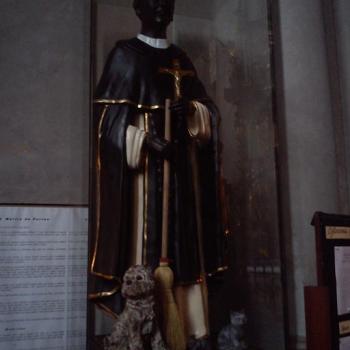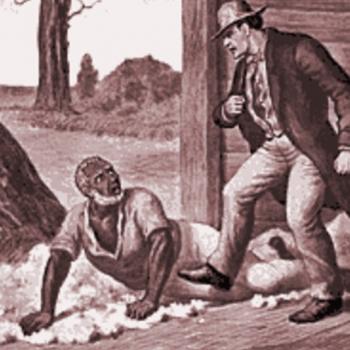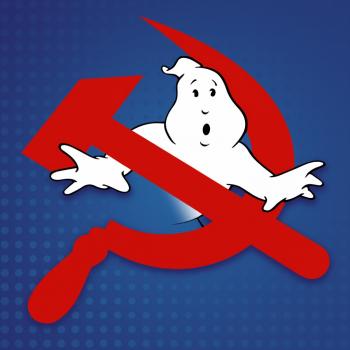Note: This piece is being reposted, with a few minor edits, from another blog I occasionally contribute to, Broadway Fillmore Alive, based in my first hometown of Buffalo, NY. You can see the original piece here: http://broadwayfillmorealive.org/2.0/2017/08/how-i-became-a-racist/
This is an essay I have been meaning to write for a long time. It is also one that I have avoided writing, possibly for fear of the criticism I know I’ll receive, but mostly due to the difficulty of facing unsavory truths about myself. But the act of white supremacist domestic terrorism that took place in Charlottesville, Virginia yesterday – followed by the US president’s lukewarm condemnation of “violence on many sides” and failure to hold the perpetrators to account – are finally making me sit down, meet the blank page, and try to formulate answers to questions that have been brewing in me for years.
But before I begin to untangle any answers, I must admit a shameful truth: as eager as I am to condemn racism, I myself am a racist.
Before I go any further, allow me to state clearly that a racist is not what I want to be. Just as people who attend AA meetings do not want to be alcoholics, I yearn to be cured of my racism. And I am active in seeking this cure – by reading history from perspectives other than that of the victors, by listening to the stories of my diverse groups of students, by working with political organizations that seek to create a society where all people are given a fair chance.
And yet, I am still a racist. And, at the risk of offending many, I dare to say that if you, the reader of this article, are a US American of European descent, it is overwhelmingly probable that you are as well.
I can imagine your reaction on reading these words: anger, defensiveness, or perhaps dismissive eye-rolling at what might seem an empty, attention-seeking mea culpa from yet another white liberal. Please understand that I am not trying to accuse or criticize anyone. Instead, I am simply calling for us to recognize the bitter truth underlying our American identity for what it is. For me, this recognition must begin with a look at myself.
Like all children everywhere, I was not born a racist. But, unfortunately, I started becoming one within just a few years – if not months – of entering this world.
I became a racist by being raised in a family, church and school where nearly everyone was white. While I did have some encounters with non-white people (much to her credit, my mother made a point of putting six-year-old me into an urban summer day camp where I could at least recognize the existence of people who did not look like me), I was led to see them as somehow different, other, “not-like-us.”
I became a racist when, at age four, I heard the “n-word” for the first time – from my grandmother, who was complaining about how “those people” had “ruined” the neighborhood where she grew up in Buffalo, New York. “What did you say?” I asked her, and she looked away, embarrassed. My mother awkwardly told me to go out and play.
I became a racist when, again and again through my preteen years, I listened to fearful white suburbanites – relatives, family friends, hairdressers, grocery store clerks – going on and on about how “that neighborhood has changed so much” and “I would never go there.” (And yet, somehow they managed to descend on that same neighborhood every year at Easter time in a fit of nostalgia, eager to celebrate their traditions and visit the old, historically Polish-American churches, only to go back to condemning it once the hams and chocolate rabbits have been eagerly gobbled up).
I became a racist when I attended a prestigious private high school where over 95% of the students and all of the teachers were white. It was a high-achieving school with a rigorous entrance exam and the clear expectation that all of us were college-bound. In this way, I learned that white was the primary color of academic achievement, social mobility and future professional success.
I do not mean to denigrate my family or my education. On the whole, my family members – including the grandmother I cited above – are compassionate, generous people who lead their lives based on a deep-seated sense of right and wrong. My teachers were dedicated, incisive people whose example ultimately inspired me to become a teacher myself. In high school history classes I learned about the history of European colonization and the havoc it caused in the world; I studied white settlers’ genocide of Native Americans during the nineteenth century; I was forced to acknowledge the fact of slavery. I also read the words of great African-American leaders like Frederick Douglass and Sojourner Truth.
In American literature classes I read Alice Walker and Zora Neale Hurston alongside F. Scott Fitzgerald and Ernest Hemingway. In religion classes (my entire pre-college education was Catholic) I was introduced to the principles of Catholic Social Teaching, even if it was not explicitly called by that name. But was this enough to counteract all the other messages I was getting – from the media, from my own circle of acquaintances in the suburb where I lived, and unfortunately, sometimes from my nearest and dearest?
Unfortunately, it was not. In college, I was given the chance to take the Implicit Association Test – a psychological assessment that seeks to expose the biased attitudes that most of us hide, even from ourselves. Taken on a computer, it works by flashing words at subjects – words like “love,” “inspiration,” “hate,” and “fear” – and subjects are asked to mark these words as positive or negative. In between the words, images of faces are shown. Alas, like many participants, I made mistakes taking this test – I was much more likely to click the “negative” key after seeing a black face, even if the associated word was a positive one.
Along with this implicit bias lay a large amount of ignorance. I did not know about blackface – a staple of late nineteenth and early-to-mid-twentieth century theatre – until I was twenty-six and a graduate student at a Canadian university, when I happened to meet a professor who studies it as his main research area. I had heard about the history of lynchings, but I had no idea how common they were – or that they continued into the 1960’s – until two years ago, when I was preparing to teach Ralph Ellison’s grisly realistic story “A Party Down at the Square” to my own students.
Do my implicit attitudes and lack of knowledge make me a bad person? I don’t think so. Is guilt the appropriate response? Again, I don’t think so. As contemporary Nigerian writer Chimamanda Ngozi Adichie argues in her acclaimed novel Americanah, most African-Americans do not want European-Americans to feel guilty. Instead, they are simply asking us to accept the truth that race-based inequality is deeply woven into the very fabric of our society.
So many times, when I have gotten into discussions on race and racism, either in person or online, I encounter defensiveness on the part of my fellow European Americans – a quick eagerness to distance ourselves from racism, to say “I’m not like that,” to point out that non-whites can be bigoted too. I would argue that this “white fragility” is one of the main forces perpetuating the stark injustice in our society today. Because while any human being can be bigoted, racism as it exists in the 21st century United States is overwhelmingly a structural issue.
Thankfully, violent events like the Charlottesville white supremacist rally and subsequent attack do not enjoy widespread acceptance; while the president’s response many have been lukewarm, the outraged reaction to his tepidity has been swift and pointed. However, there are many other instances of racism that on the whole we accept every day – like the segregation of our cities, the disproportionate amount of African-Americans in our prison system, and the racialized disparities in our public school system.
Looking at these structural injustices, it is all too easy for a European-American to evade or flat-out deny responsibility, to blame inequality on those who suffer most from it. But the fact is, the playing field is not level. As much as I’d like to think that I reached my current social status by my own merit, the truth is that I came into the world with a deck stacked in my favor. None of us has any power over the hand that we are dealt. But, those of us who’ve received particularly good hands hold a certain amount of power to step back and reshuffle – or perhaps, even better still, to try to change the rules of the game so that it will no longer be zero-sum. But it is hard to even begin to do this when so many of us are unwilling to critically examine the hand we were dealt, to recognize that our advantages have come at the expense of others.
It is hard to accept the truth that, just by virtue of being born into the dominant class of a society that is inherently racist, I became a racist. However, not unlike a twelve-step program attendee, I strive every day to remain in recovery – with full knowledge that the process will take a lifetime. By listening to those whom our unjust systems have hurt, by standing with them in their struggles for freedom, peace and justice, I can strive to unlearn the tacit assumptions I’ve been taught. Today, in the wake of this extreme act of hatred, I would ask all of you to engage in a similar process of self-examination and a critical “unlearning” of all those false assumptions that have been inculcated into us from birth. The very future of our local communities, nation and world depends on it.












